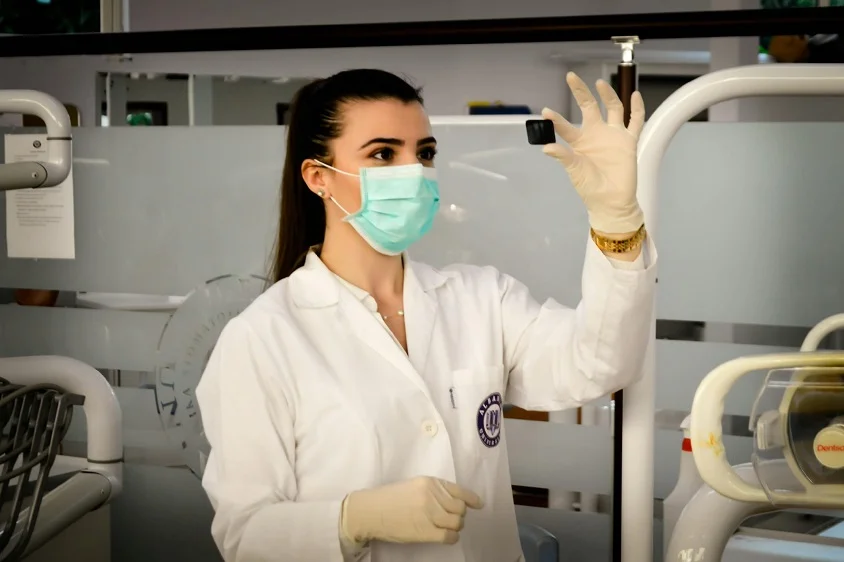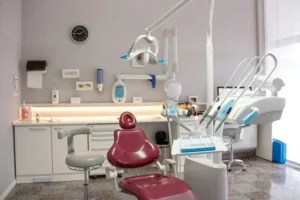How to Build a Career in the Medical Field Without a Degree
- Updated on: Jan 6, 2025
- 3 min Read
- Published on Jan 6, 2025

For those ready to launch a career in healthcare without needing a formal degree, investigating entry-level medical jobs presents many possibilities. Accessible to a broad spectrum of people, roles include medical assistant, pharmacy technician, and patient care technician, stressing practical experience and pertinent credentials. Knowing these occupations’ particular criteria and obligations helps aspiring medical professionals match their qualifications and interests with appropriate jobs. Furthermore, improving one’s credentials through volunteer work, internships, and specialist certification helps individuals become more competitive in the employment market. Navigating a successful career path in the medical sector also depends critically on networking with industry colleagues and pursuing further education.

Image attributed to Unsplash.com
Research Entry-Level Medical Positions
Investigating several entry-level medical jobs can expose many possibilities without a formal degree. Medical assistants, pharmacy technicians, patient care technicians, and medical scribes, among other positions, may give hands-on experience and qualifications top priority over conventional education. In particular, medical scribing lets people collaborate closely with healthcare professionals, recording patient visits and getting a special understanding of clinical procedures. Investigating particular job criteria and tasks will enable you to find which positions fit your interests and qualifications. Many of these roles also include on-the-job training, which helps people acquire useful experience and support patient care using relevant expertise.
Gain Experience Through Volunteer Work or Internships
Seeking internships in healthcare environments or volunteering can offer priceless practical knowledge and market insight. Many hospitals, clinics, and non-profit groups invite volunteers so that people may assist doctors and experience administrative labor and patient care. These changes improve pragmatic abilities and help create a professional network, which is important for the next employment prospects. Participating in such events shows dedication and love of the field, which appeals to possible companies more.
Obtain Certifications or Licenses in Specialized Areas
In the medical industry, seeking certificates or licenses in particular areas would greatly improve your skills and marketability. Often easily available and quick to complete, programs for positions include Certified Nursing Assistant (CNA), Emergency Medical Technician (EMT), or Medical Billing and Coding Specialist. These certifications highlight your knowledge and your dedication to professional growth—qualities that companies admire. Many certification courses also incorporate practical training elements, letting you pick up vital skills while preparing for a great job.
Network With Professionals in the Medical Field
Getting in touch with medical professionals can lead to many possibilities and give insightful analysis of several career routes. Visit local health fairs, seminars, or industry events to meet people who can provide advice or personal experience. Joining internet forums or social media groups targeted at healthcare can also enable conversations and keep you updated with job postings and trends. Developing rapport with peers or mentors might result in recommendations and direction, facilitating your career path free from a formal degree.
Pursue Continuing Education Opportunities
By significantly improving your knowledge and abilities, ongoing education will help you to become more competitive in the medical sector. Many businesses offer seminars, online courses, and workshops on medical technology, patient care strategies, and subjects related to healthcare administration. Not only will actively looking for these opportunities improve your professional development and maintain current industry innovations and best practices, but it will also help you give better care. Moreover, proving a dedication to lifelong learning can help you stand out from other applicants and wow possible companies.
Conclusion
For those ready to enter the healthcare industry without a formal degree, investigating entry-level medical jobs presents many options. Aspiring candidates can improve their qualifications and marketability by acquiring pertinent certifications, hands-on experience from volunteer work or internships, and active professional networking. In this highly competitive climate, seeking ongoing education and properly presenting abilities and experience during job applications and interviews would greatly increase prospects. Committed and proactive people can effectively negotiate their medical career routes, significantly improving patient care and the larger healthcare community.












